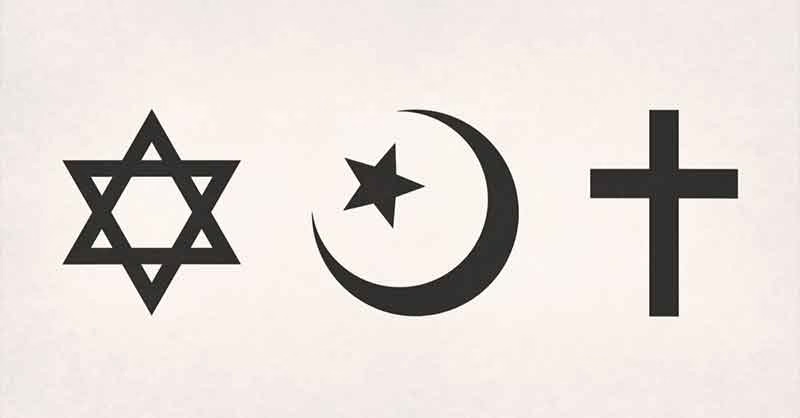
Preamble
Recognizing that human dignity originates from Divine creation – “We have honoured the children of Adam” (17:70) – and acknowledging the Quran’s revolutionary elevation of women’s status in seventh-century Arabia, this Charter articulates the inalienable rights bestowed upon women by their Creator. Grounded in the Quran’s paradigm-shifting principles of Tawhid (Divine Unity), khilafah (moral trusteeship), and ‘adl (cosmic justice), we affirm: Now, Therefore,
This Declaration proclaims these Quranic Rights Conferred Upon Women, derived from the Divine scripture, as a standard for upholding their God-given status and ensuring their just treatment:
Article 1: Spiritual Equality and Worth
Every woman is equal to every man in spiritual potential, accountability before God, and the entitlement to reward for faith and righteous deeds. (Quran 3:195, 4:124, 9:71-72, 16:97, 33:35, 40:40)
Article 2: Right to Life and Dignity
Every woman has the inherent right to life, security, and dignity. Practices such as female infanticide stand condemned. (Quran 6:151, 17:31, 81:8-9)
Article 3: Moral Agency and Responsibility
Every woman possesses independent moral agency and is solely responsible for her own actions before God. (Quran 6:164, 7:19-22, 35:18)
Article 4: Right to Economic Independence
Every woman has the right to own, inherit, manage, and dispose of property and wealth independently. Her earnings are her own. (Quran 4:7, 4:11-12, 4:32)
Article 5: Right to Earn a Livelihood
Every woman has the right to engage in lawful work and economic activity. (Quran 4:32, cf. 28:23)
Article 6: Right to Financial Maintenance in Marriage
A wife is entitled to financial support (including sustenance, housing, and clothing) from her husband, commensurate with his means and societal norms. (Quran 2:233, 4:34, 65:6-7)
Article 7: Right to Mahr (Bridal Gift)
Every woman entering marriage is entitled to receive a bridal gift (Mahr) from her husband, which belongs exclusively to her. (Quran 4:4, 4:20-21, 4:24)
Article 8: Right to Consent in Marriage
Marriage must be based on mutual consent. No woman shall be compelled into marriage against her will. (Quran 4:19, 2:232 implies consent)
Article 9: Right to Kind Treatment and Respect in Marriage
Every woman has the right to be treated with kindness, respect, compassion, and fairness by her husband. Spouses are expected to dwell in tranquillity and mutual affection. (Quran 4:19, 30:21)
Article 10: Protection from Slander
Every woman has the right to protection of her reputation. False accusations against chaste women are severely condemned and punishable. (Quran 24:4, 24:23)
Article 11: Right to Seek Divorce (Khul’)
A woman has the right, under defined conditions, to seek the dissolution of her marriage. (Quran 2:229)
Article 12: Right to Remarry
Widowed and divorced women have the right to remarry without prejudice. (Quran 2:232, 2:234-235)
Article 13: Right to Fair Treatment in Marital Disputes
In cases of marital discord or potential separation, women are entitled to processes aimed at reconciliation or just dissolution, protecting their rights. (Quran 4:35, 4:128-130)
Article 14: Protection from Harm and Abuse in Marriage
No woman shall be retained in marriage solely to inflict harm or abuse upon her. Principles of kindness and mutual respect preclude domestic violence. (Quran 4:19, interpretations emphasizing kindness over harmful readings of 4:34)
Article 15: Parental Rights and Responsibilities
Mothers hold specific rights concerning the nursing and well-being of their children, particularly during infancy, and are considered in matters of custody based on the child’s welfare. (Quran 2:233, 65:6)
Article 16: Right to Justice and Fair Hearing
Every woman is entitled to justice and equal consideration before the law. (Quran 4:135, 5:8)
Article 17: Right to Testify
A woman’s testimony is valid and recognized in legal matters, according to the specific contexts outlined in the Quran. (Quran 2:282, 24:6-9, 5:106, 65:2)
Article 18: Right to Education and Knowledge
Every woman has the right, indeed the encouragement, to seek knowledge and education. (Quran 96:1-5, 20:114)
Article 19: Right to Social and Political Participation
Women have the right to participate in the affairs of the community, including voicing opinions, participating in consultation (Shura), and pledging allegiance (Bay’ah). (Quran 58:1, 60:12)
Article 20: Right to Non-Stereotypical Roles and Leadership Potential
The Quran presents women in diverse roles, including positions of leadership and intellectual engagement, affirming their potential beyond restrictive stereotypes. (Quran 19:16-34 – Maryam, 27:23-44 – Queen of Sheba, 2:30 – Khalifah concept applied gender-neutrally)
Article 21: Right to Interpretive Engagement
Every woman has the right to engage with religious texts, seek understanding, and participate in scholarly discourse, upholding the principles of justice and mercy inherent in the Quran. (Implied by right to knowledge and examples like 58:1)
Article 22: Right to Privacy
Every woman has the right to privacy in her home and personal life. (Quran 24:27-28, 24:30-31)
Article 23: Right to Modesty and Choice
Women, like men, are enjoined towards modesty. This right includes protection from coercion in matters of dress, upholding the principle of “no compulsion in religion.” (Quran 24:30-31, 33:59, 2:256)
Article 24: Right to Protection from Oppression and Seek Asylum
Every woman has the right to be protected from oppression and, if facing persecution, the right to seek refuge and safety. (Quran 4:75, 4:97-100)
Article 25: Right to Health and Well-being
Every woman has the right to health and well-being, recognized through concessions such as exemption from fasting during menstruation, pregnancy, or nursing. (Quran 2:184, 2:222)
Article 26: Fulfilment of Rights
These rights are conferred by the Quran (4:135, 5:8, 17:70), and it is the responsibility of the individual, family, and community to ensure they are respected and fulfilled in the spirit of justice and compassion that permeates the scripture (16:90, 49:13, 6:152).
Appendix: Quoted Quranic Verses
(Translations from M.A.S. Abdel Haleem, The Qur’an: A New Translation. Oxford: Oxford University Press, 2004. Verses arranged in ascending order by Chapter number.)
2:30: When your Lord told the angels, ‘I am putting a successor on earth,’ they said, ‘How can You put someone there who will cause damage and bloodshed?’
2:184: [Fasting] is for a fixed number of days… anyone who is ill or on a journey should make up the same number of days later.
2:222: They ask you about menstruation. Say, ‘It is harmful, so keep away from women during it…’
2:229: Divorce can happen twice, and then either honourable retention or kindly release is to be observed…
2:232: When you divorce women and they fulfil their terms, do not prevent them from remarrying their [former] husbands…
2:233: Mothers may breastfeed their children for two complete years…
2:234–235: Widows must wait for four months and ten days before remarrying… There is no blame on you for openly proposing to such women…
2:256: There is no compulsion in religion: the right way has become distinct from error.
2:282: Get two witnesses out of your own men, and if two men are not available, then one man and two women…
3:195: I will not let the deeds of any doer among you go to waste, male or female: you are all from one another.
4:4: Give women their bridal gifts graciously. If they give up part of it willingly, you may enjoy it with a clear conscience.
4:7: Men shall have a share in what their parents and close relatives leave, and women shall have a share…
4:11–12: God commands you regarding your children: the share of the male shall be twice that of a female… You inherit from your wives… They inherit from you…
4:19: You who believe, it is not lawful for you to inherit women against their will. Do not harass them so as to make their lives difficult…
4:20–21: If you wish to replace one wife with another, do not take any of her bride-gift back… How could you take it when you have been intimate with one another…
4:24: Also forbidden are married women, except those you rightfully possess. This is God’s decree to you. All other women are lawful to you provided you seek them in marriage…
4:32: Do not covet what God has given to some of you more than others – men have the portion they have earned; women have the portion they have earned.
4:34: Men are the protectors and maintainers of women, as God has given some more strength than others…
4:35: If you fear a breach between them, appoint one arbiter from his people and one from hers…
4:75: Why should you not fight in God’s cause and for those helpless men, women, and children…
4:97–100: When the angels take the souls of those who have wronged themselves, they ask, ‘What was wrong with you?’ They reply, ‘We were oppressed in this land.’ The angels say, ‘Was God’s earth not wide enough for you to emigrate to elsewhere?’
4:124: Anyone, male or female, who does good deeds and is a believer will enter Paradise.
4:128–130: If a woman fears ill-treatment or desertion from her husband, it is no sin for them to seek a peaceful settlement.
4:135: You who believe, uphold justice and bear witness to God, even if it is against yourselves, your parents, or your close relatives.
5:8: Stand out firmly for God, as bearers of witness with justice. Do not let hatred of others lead you away from justice.
5:106: You who believe, when death approaches any of you, let two just men from among you act as witnesses at the time of making the will.
6:151: Do not kill your children for fear of poverty – We shall provide for you and for them…
6:152: “When you speak, be just, even if it concerns a relative, and keep your promises to God: this is what He has commanded you to do so that you may take heed.”
6:164: Every soul draws the consequences of its own actions; no soul will bear the burden of another.
7:19–22: [God said,] ‘Adam, live with your wife in the Garden…’ But Satan whispered to them… and so they ate from the tree…
9:71–72: The believers, both men and women, support each other… God has promised the believers, both men and women, Gardens graced with flowing streams where they will remain…
16:97: Whoever does good, male or female, and is a believer, We shall give them a good life and reward them according to the best of their deeds.
17:31: Do not kill your children for fear of poverty – We shall provide for them and for you.
17:70: We have honoured the children of Adam and carried them by land and sea; We have provided good sustenance for them and favoured them especially above many of those We have created.
19:16–34: Mention in the Quran the story of Mary… She withdrew to a place to the east… She said, ‘How can I have a son when no man has touched me?’… [Jesus said,] ‘He has made me blessed wherever I may be, and commanded me to pray and give alms as long as I live…’
20:114: My Lord, increase me in knowledge.
24:4: As for those who accuse chaste women but do not produce four witnesses, flog them with eighty lashes and do not accept any evidence from them ever.
24:6–9: If a husband accuses his wife, he must swear four times by God that he is telling the truth, and the fifth time, call God’s curse upon himself if he is lying. But the punishment shall be averted if the wife in turn swears four times by God that he is lying…
24:23: Those who accuse honourable but unwary believing women are rejected by God in this life and the next.
24:27–28: Believers, do not enter other people’s houses until you have asked permission to do so and greeted those inside.
24:30–31: Tell believing men to lower their eyes and guard their private parts… Tell believing women to lower their eyes, guard their private parts, and not display their charms beyond what [it is acceptable] to reveal.
27:23–44: I found a woman ruling over them – she has been given everything and she has a mighty throne… She said, ‘Kings, when they enter a city, ruin it and humiliate its leaders – that is what they do. But I am going to send them a gift…’ (abridged narrative of the Queen of Sheba)
28:23: When he arrived at the well of Midian, he found a crowd of people watering [their flocks] and two women waiting with their flocks off to one side. He asked, ‘What is the matter with you?’ They said, ‘We cannot draw water until the shepherds have driven [their flocks] away – our father is a very old man.’
30:21: Another of His signs is that He created spouses from among yourselves for you to live with in tranquillity: He ordained love and kindness between you.
33:35: For men and women who are devoted to God – believing men and women, obedient men and women, truthful men and women, steadfast men and women, humble men and women, charitable men and women, fasting men and women, men and women who guard their chastity, men and women who remember God often – God has prepared forgiveness and a rich reward.
33:59: Prophet, tell your wives, your daughters, and women believers to make their outer garments hang low over them. That is more likely that they will be recognized and not insulted. God is most forgiving, most merciful.
35:18: No soul will bear the burden of another; if a heavily laden soul cries out for help, none of its load will be carried, not even by a close relative.
40:40: Whoever does evil will be repaid with its like, but whoever does good and believes, whether male or female, will enter Paradise and be provided for without measure.
58:1: God has heard the words of the woman who disputed with you about her husband and complained to God: God hears what you both had to say.
60:12: Prophet, when believing women come and pledge to you that they will not associate anything with God, nor steal, nor commit adultery, nor kill their children, nor speak slander, falsely attributing it to their husbands, nor disobey you in what is right, then accept their pledge and ask God to forgive them.
65:2: When their waiting time is over, either keep them on in a fair manner or part with them in a fair manner. Call two just men from among you and establish witness for the sake of God.
65:6: House the wives you are divorcing according to your means wherever you house yourselves, and do not harass them so as to make their lives difficult.
65:7: Let the man of means spend according to his means, and the man whose resources are limited should spend according to what God has given him.
81:8–9: When the baby girl buried alive is asked what sin she was killed…
96:1–5: Read! In the name of your Lord who created: He created man from a clinging form. Read! Your Lord is the Most Bountiful One who taught by [means of] the pen, who taught man what he did not know.
Subscribe to Our Newsletter
Get the latest CounterCurrents updates delivered straight to your inbox.
V.A. Mohamad Ashrof is an independent Indian scholar specializing in Islamic humanism. With a deep commitment to advancing Quranic hermeneutics that prioritize human well-being, peace, and progress, his work aims to foster a just society, encourage critical thinking, and promote inclusive discourse and peaceful coexistence. He is dedicated to creating pathways for meaningful social change and intellectual growth through his scholarship. He can be reached at [email protected]














































